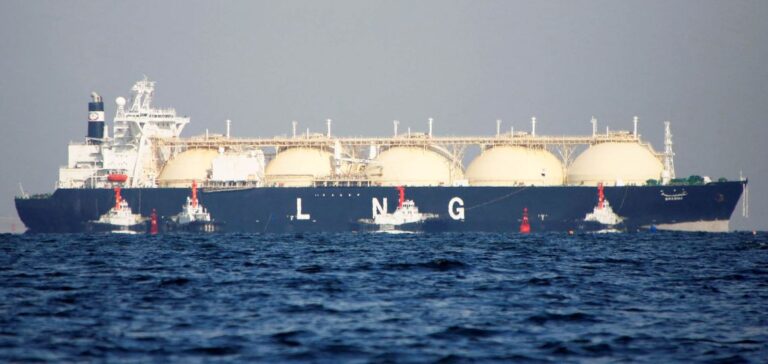Egypt has concluded a deal valued at 3 billion dollars to import 60 cargoes of liquefied natural gas. The companies involved, Shell and TotalEnergies, have not publicly confirmed the details of this negotiation. Some sources indicate that these cargoes would be delivered from 2025 onward. Observers point out that the country already resumed its LNG imports in 2024 due to an imbalance between domestic supply and demand.
Cadre Général
Gas production in Egypt has recently experienced a decline, notably in the Zohr field, leading to an increased reliance on imports. Local authorities launched several tenders in 2024 to cover the needs of electric power generation and industrial consumption. According to industry sources, nearly 20 cargoes were purchased for the second half of 2024 via the Ain Sokhna regasification terminal. Part of the supplies initially intended for Jordan was also redirected to Egypt.
The new financial terms signed with Shell and TotalEnergies include an indexation on the Dutch Title Transfer Facility (TTF), the benchmark index for gas in Europe. The price would thus be adjusted according to market fluctuations, offering flexibility in the face of spot volatility. Unlike previous contracts that required settlement within 180 days, this new agreement allows for payments spread out over up to one year. Negotiators believe this formula aims to ease Egypt’s cash flow burden while ensuring supply security.
Modalités Financières
Premiums applied to cargoes destined for Egypt fluctuated in 2024, ranging between 1.50 and 2 dollars per million British Thermal Units (MMBtu). Several factors explain these increases, including transit fees through the Suez Canal and higher insurance costs. The extension of payment deadlines also contributed to an overall price markup. Observers stress the importance of securing these cargoes quickly to avoid potential price spikes later on.
Estimates released by S&P Global Commodity Insights place the LNG spot price in the Eastern Mediterranean at about 14 dollars per MMBtu for early 2025. Rates could climb above 16 dollars in the spring, driven by heightened demand and the absence of arbitrage to Asia. This trend would be reinforced by the partial closure of Asian flows, making Mediterranean cargoes more attractive to suppliers. Some actors see this context as an opportunity for Egypt to establish longer-term agreements.
Perspectives Régionales
Upstream expansion plans and the intensification of regional collaborations highlight Egypt’s determination to stabilize its supply. Talks are reportedly underway with various consortia to consolidate a competitive LNG offering. Several industry analysts believe these initiatives could alleviate domestic demand and optimize regasification infrastructure. Other longer-term contracts are also being considered to anticipate the price increase expected in 2025.






















